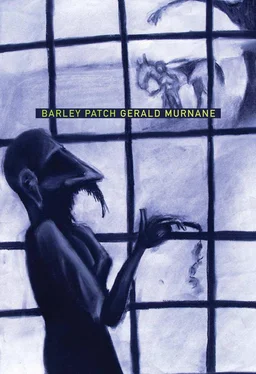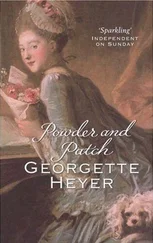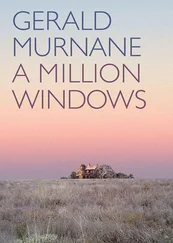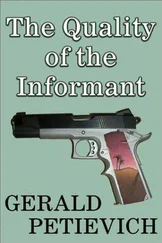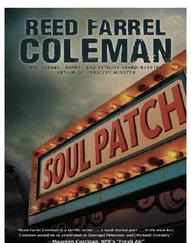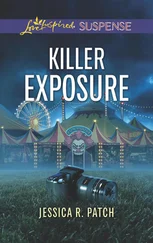Gerald Murnane - Barley Patch
Здесь есть возможность читать онлайн «Gerald Murnane - Barley Patch» весь текст электронной книги совершенно бесплатно (целиком полную версию без сокращений). В некоторых случаях можно слушать аудио, скачать через торрент в формате fb2 и присутствует краткое содержание. Год выпуска: 2011, Издательство: Dalkey Archive Press, Жанр: Современная проза, на английском языке. Описание произведения, (предисловие) а так же отзывы посетителей доступны на портале библиотеки ЛибКат.
- Название:Barley Patch
- Автор:
- Издательство:Dalkey Archive Press
- Жанр:
- Год:2011
- ISBN:нет данных
- Рейтинг книги:5 / 5. Голосов: 1
-
Избранное:Добавить в избранное
- Отзывы:
-
Ваша оценка:
- 100
- 1
- 2
- 3
- 4
- 5
Barley Patch: краткое содержание, описание и аннотация
Предлагаем к чтению аннотацию, описание, краткое содержание или предисловие (зависит от того, что написал сам автор книги «Barley Patch»). Если вы не нашли необходимую информацию о книге — напишите в комментариях, мы постараемся отыскать её.
Barley Patch — читать онлайн бесплатно полную книгу (весь текст) целиком
Ниже представлен текст книги, разбитый по страницам. Система сохранения места последней прочитанной страницы, позволяет с удобством читать онлайн бесплатно книгу «Barley Patch», без необходимости каждый раз заново искать на чём Вы остановились. Поставьте закладку, и сможете в любой момент перейти на страницу, на которой закончили чтение.
Интервал:
Закладка:
Gerald Murnane
Barley Patch
PART 1
The Turf was so complicated it went on forever.
— Jack Kerouac, Doctor SaxMust I write?
A few weeks before the conception of the male child who would become partly responsible, thirty-five years later, for my own conception, a young man aged nineteen years and named Franz Xaver Kappus sent some of his unpublished poems and a covering letter to Rainer Maria Rilke, who was by then a much-published writer although he was only twenty-eight years of age.
Kappus, of course, wanted Rilke to comment on the poems and to advise him as to who might publish them. In an answering letter Rilke made some general comments, not especially favourable, and declined to discuss the matter of publication. However, Rilke did not fail to advise the young man:
Nobody can counsel and help you, nobody. There is only one single way. Search for the reason that bids you write. . acknowledge to yourself whether you would have to die if it were denied you to write. This above all — ask yourself in the stillest hour of your night: must I write?
I first read the above passage in June 1985, soon after I had bought a second-hand copy of Rilke’s Letters to a Young Poet , translated by M. D. Herter Norton and published in New York by W. W. Norton & Company. When I first read the passage, I was a teacher of fiction-writing in what was then called a college of advanced education. As soon as I had read the passage, I typed it onto a clean page and then put the page into one of the folders of notes that I used for my classes in the unit that was called Advanced Fiction Writing. Once each year thereafter, I read to the students of that unit the advice of Rilke to the young poet. I then urged the students to question themselves from time to time as Rilke would have had them do. I then said it would be no bad thing if several at least of the persons present were to decide at some time in the future, in the stillest hour of their night, that they need no longer write.
I never afterwards heard that any former student of mine had suddenly decided to write no more or that he or she ever put into practice or even remembered Rilke’s stern advice. In the early autumn of 1991, however, four years before I ceased to be a teacher of fiction-writing, and on a bustling afternoon rather than during a still night, and without even putting to myself Rilke’s recommended question, I myself gave up writing fiction.
Why had I written?
When I stopped writing, I could have said that I had been writing fiction for more than thirty years. Some of what I had written had been published, but most of it had been stored as manuscripts or typescripts in my filing cabinets and will be there still when I die.
My pieces of published writing were called by publishers and by almost all readers either novels or short stories , but to have them thus called began in time to make me feel uncomfortable, and I took to using only the word fiction as the name for what I wrote. When I stopped writing at last, I had not for many years used the terms novel or short story in connection with my writing. Several other words I likewise avoided: create, creative, imagine, imaginary , and, above all, imagination . Long before I stopped writing, I had come to understand that I had never created any character or imagined any plot. My preferred way of summing up my deficiencies was to say simply that I had no imagination.
I was seldom embarrassed to have to admit this. The word imagination seemed to me connected with antiquated systems of psychology: with drawings of the human brain in which each swelling was named for the faculty residing there. Even when I looked into some or another novel by a contemporary author much praised for his or her imagination, I was far from being envious; a powerful imagination, it seemed, was no preventative against faulty writing.
For many years I wrote, as I thought, instinctively. I certainly did not write with ease: I laboured over every sentence and sometimes rewrote one or another passage many times. However, what might be called my subject-matter came readily to me and offered itself to be written about. What I called the contents of my mind seemed to me more than enough for a lifetime of writing. Never, while I wrote, did I feel a need for whatever it was that might have been mine if only I had possessed an imagination.
I was never merely a writer, of course. I was a reader of fiction long before I began to write it. Many writers of novels or short stories or poetry have claimed to be, in their own words, voracious and insatiable readers. I would describe myself as an erratic reader, not only because I have failed to read many of the books most admired by readers and writers of my generation but because I soon forgot much of what I did read and yet dwelt often on a certain few texts or even a few pages from those texts.
As a child, I seldom read what were called children’s books, partly because I hardly ever saw such books and partly because I decided at an early age that I was capable of reading adults’ books. My parents owned no books to speak of. They borrowed each week several books from what was called during my childhood a circulating library, but the books were always returned to the library before I could read more than a few pages. I read mostly from magazines. My parents bought each month two magazines filled with short stories. One magazine was Argosy , which came, I think, from England. The other was The Australian Journal , which included not only short stories but part of a serialised novel. The rule in our household was that my mother would first read each of these magazines so that she could tell me which stories, if any, were not suitable for me. I would then be allowed access to the magazine, provided that I undertook not to read the stories deemed unsuitable. These, of course, I always read first, hoping to learn from them some or another secret from the world of adults. I learned from this furtive reading of mine only that my mother did not want me to read descriptions of what might be called prolonged, passionate embraces and that she did not want me to know that young women sometimes became pregnant even though they were not yet married.
A person who claims to remember having read one or another book is seldom able to quote from memory even one sentence from the text. What the person probably remembers is part of the experience of having read the book: part of what happened in his or her mind during the hours while the book was being read. I can still remember, nearly sixty years later, some of what I read as a child, which is to say that I can still call to mind some of the images that occurred to me while I read as a child. As well, I claim that I can still feel something of what I felt while those images were in the foreground of my mind.
During the years from about 1960 to about 1990, I read more than a thousand books, mostly of a sort that could be called literature. When I last looked through the pages of the ledger where the titles and the authors of all those books are recorded, I learned that twenty or so of the books had left on me some sort of lasting impression. A few moments ago I was able to scribble in quick succession, in the margin of the page where I wrote the early drafts of each sentence on this page, the titles and authors of nine of the twenty or so books mentioned in the previous sentence. And just now, while I was writing the previous sentence, I remembered a tenth title and author. After having written the previous sentence, I waited for more than a minute, at the end of which time an eleventh title and author came to my mind.
Читать дальшеИнтервал:
Закладка:
Похожие книги на «Barley Patch»
Представляем Вашему вниманию похожие книги на «Barley Patch» списком для выбора. Мы отобрали схожую по названию и смыслу литературу в надежде предоставить читателям больше вариантов отыскать новые, интересные, ещё непрочитанные произведения.
Обсуждение, отзывы о книге «Barley Patch» и просто собственные мнения читателей. Оставьте ваши комментарии, напишите, что Вы думаете о произведении, его смысле или главных героях. Укажите что конкретно понравилось, а что нет, и почему Вы так считаете.
